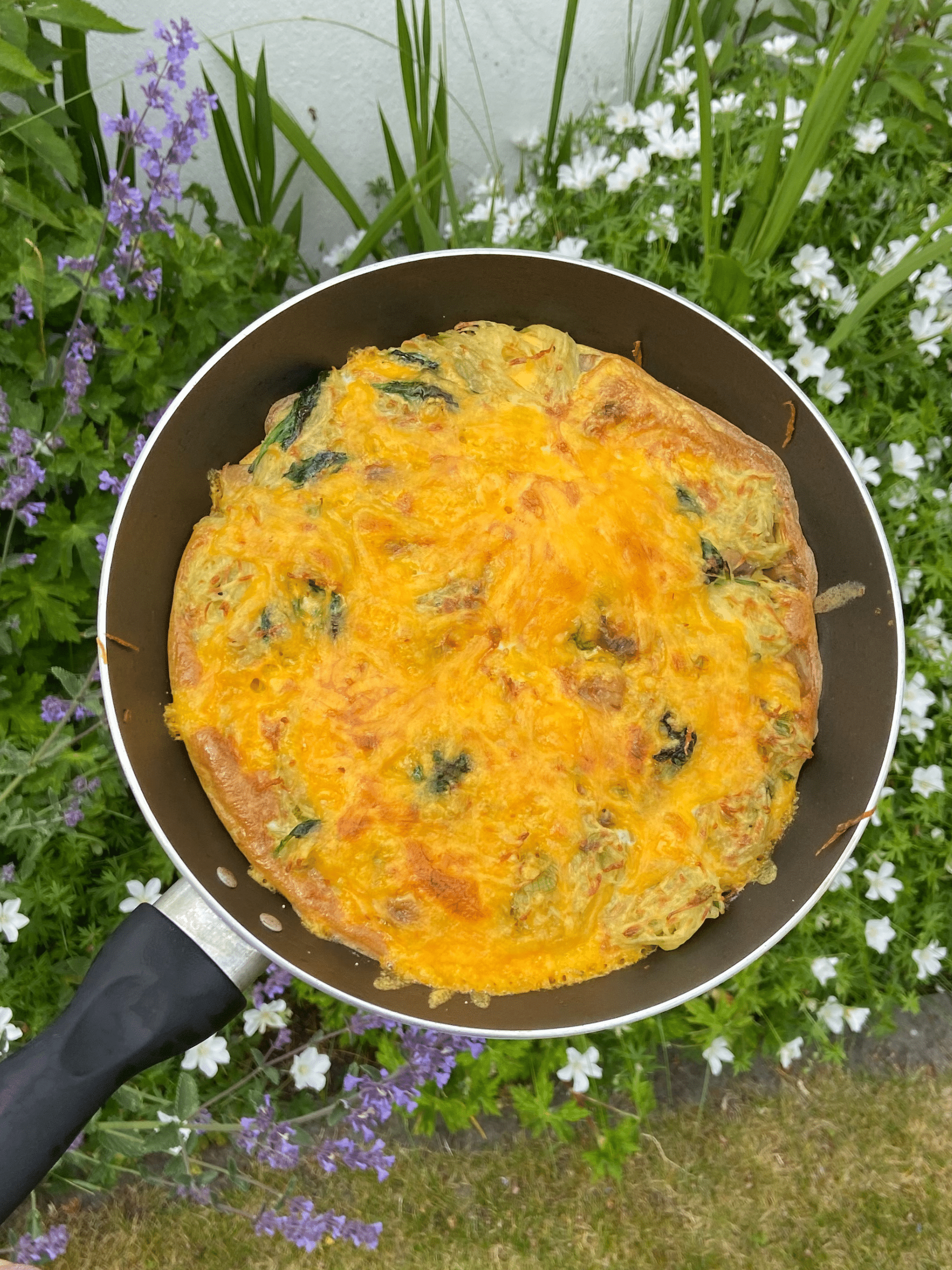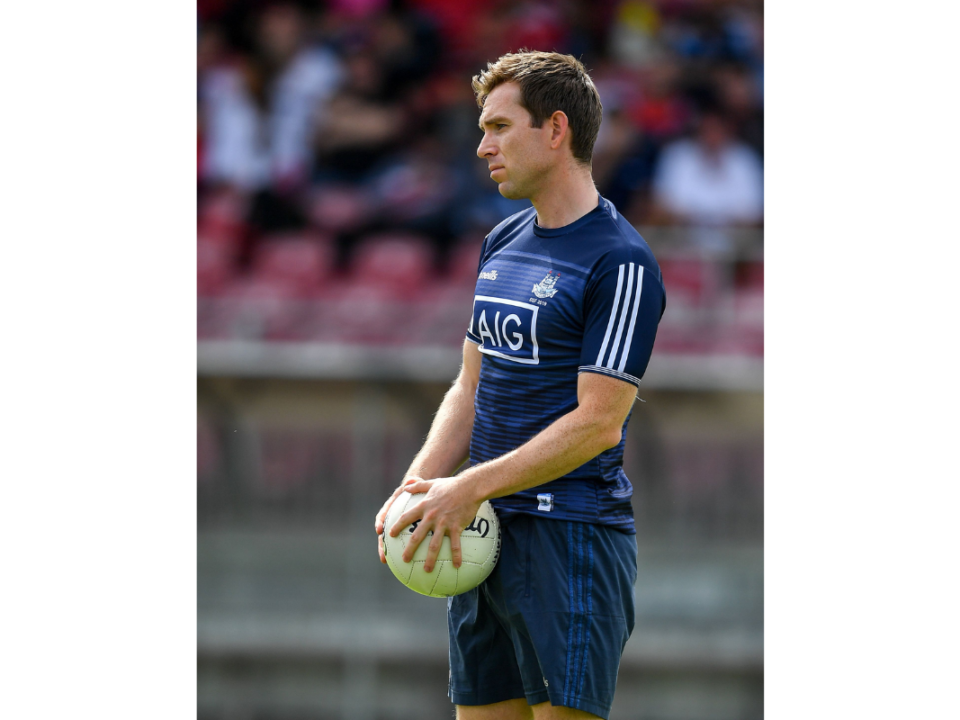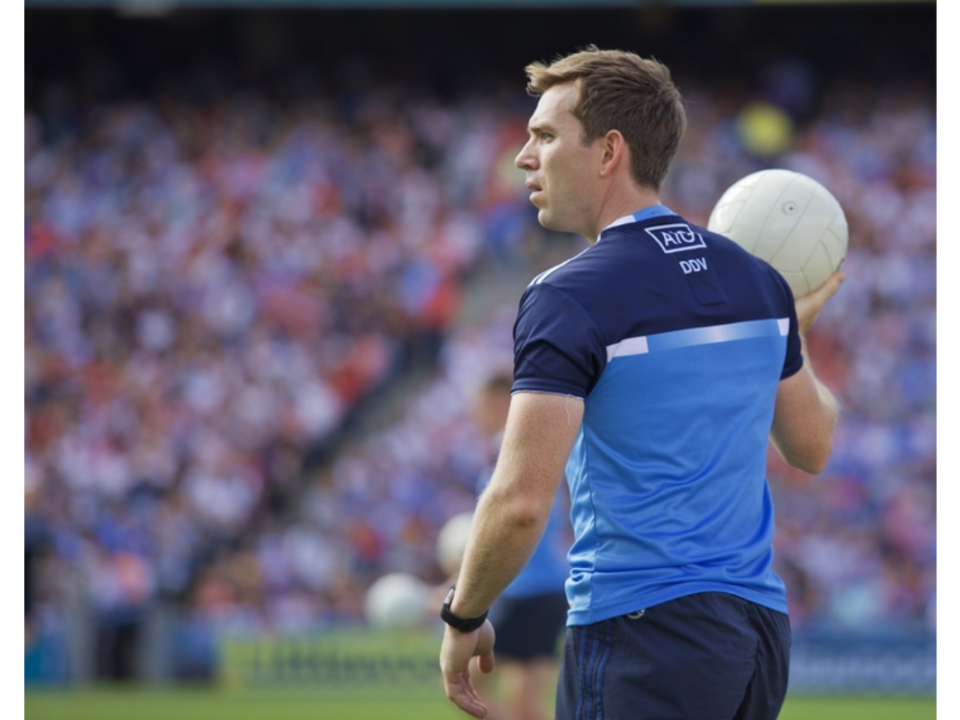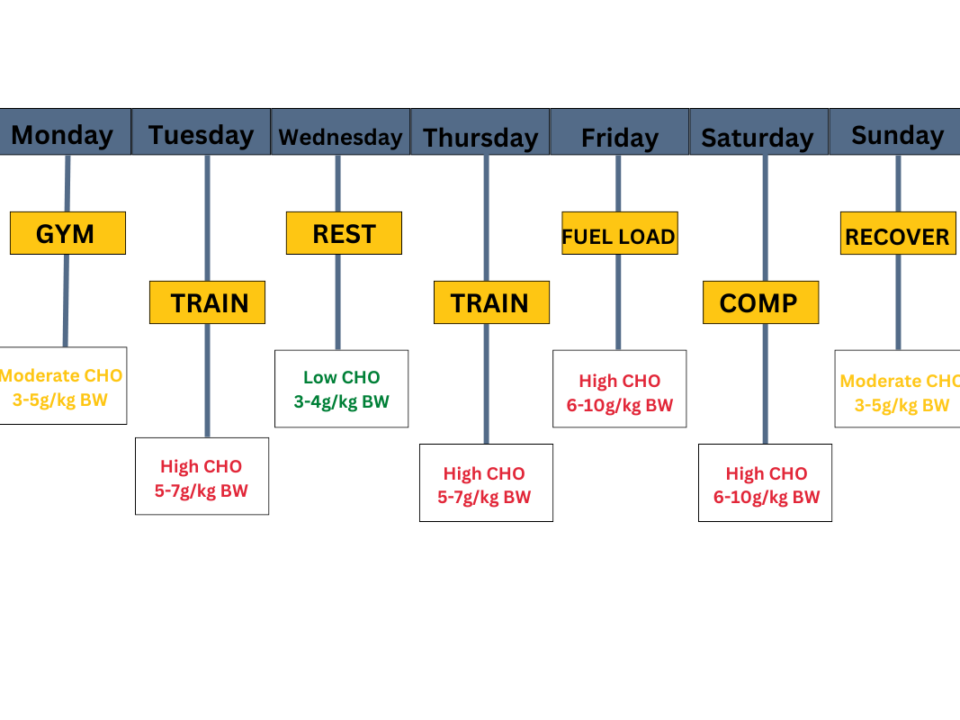There is no magic cure or potion for a quick recovery from injury, but there are evidence based nutrition strategies that support healing and aid recovery when combined with an appropriate rehabilitation plan. Injury recovery can be a long, difficult and frustrating process, but effective nutrition strategies can play a crucial role in supporting the healing process and ensuring a speedy recovery.
Research shows that adequate nutrition strategies can:
- Reduce the risk of surgical complications
- Minimise muscle loss during injury recovery
- Support healing and maximise return to play (Smith-Ryan et al., 2020).
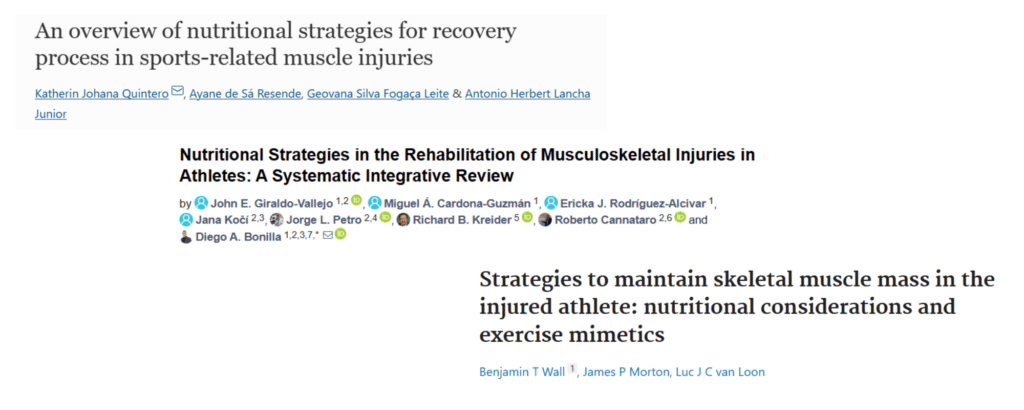
Did you know that:
- There are physical & psychological impacts resulting from injury.
- There are 3 key stages in the physiological recovery process; inflammatory, proliferation & remodelling.
- Inflammation is one of the first reactions that occurs in the body following injury.
- When an injury occurs that results in immobilisation, muscle disuse atrophy results at a rate of 0.5% per day! This muscle loss can be up to 400g of muscle tissue from a leg within the early stages.
- During injury periods muscle strength loss of up to 40% can occur.
- People with injury often have to deal with appetite reduction which is not closely correlated with an actual need for calories.
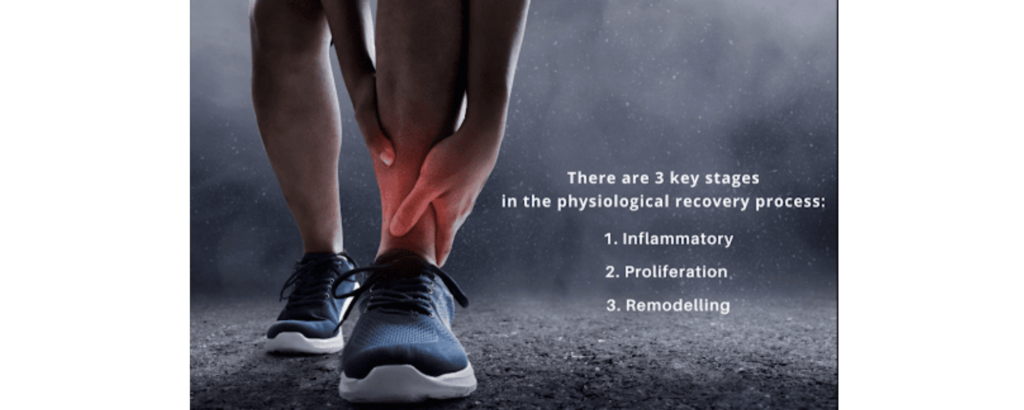
What can you do to support the recovery process?
Here is what is in your control!
- Key nutrition strategies help to support recovery from injury at each stage of recovery.
- Consuming appropriate energy (calories) is vital for the recovery process.
- Specific macronutrient intakes have been found to reduce muscle wastage and support healing.
- Certain foods can help in managing inflammation associated with injury.
- A supplement strategy can have a positive effect on the recovery process.
- Eating tasty, balanced meals that help you heal and recover
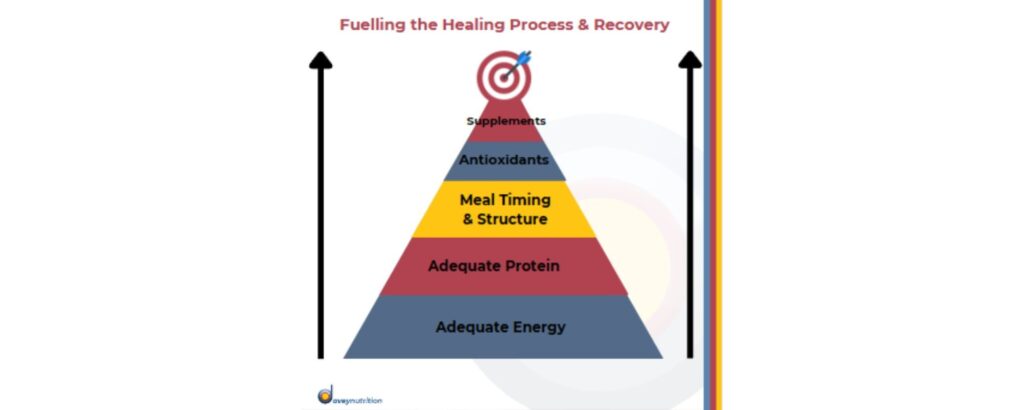
Here at daveynutrition, we have launched our new Return to Play (RTP) Program based on science, experience and a genuine interest in helping people recover faster from injury. The aim of this package is to help injured athletes come back stronger from injury, both physically and mentally.
By signing up to our RTP Program you will have the benefit of:
- Two 1-1 Consultations
- Direct Accountability
- Educational Resources
- Website access for 1 year
- Injury recovery meal plans
- Articles
- 100’s of recipes
Recipes to help aid recovery
Orange Split Jellies Scrambled Egg & Salmon Bagel Chorizo and Garlic Pasta
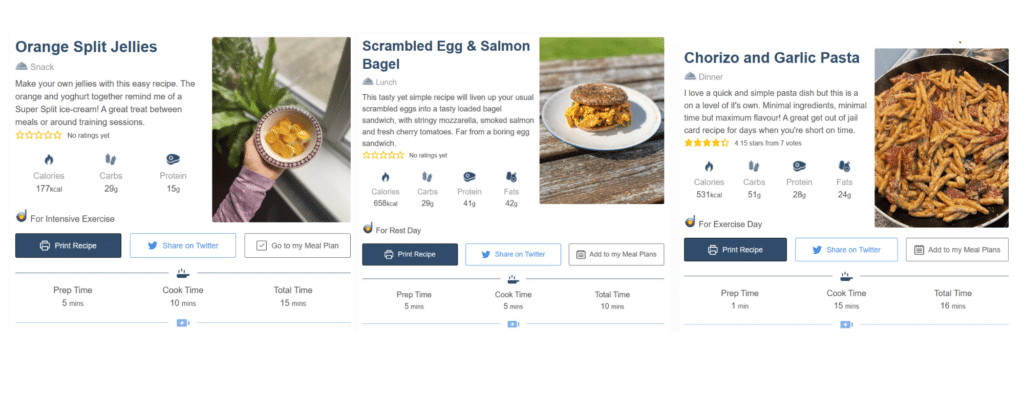
What does the RTP program focus on?
- Mindset towards injury & recovery
- Stages of Injury – so you understand what is happening to your body
- Macronutrients for recovery
- Micronutrients for recovery
- Antioxidants and anti-inflammatory foods
- Pre-surgery nutrition preparation*
- Post-surgery nutrition recovery*
- Supplements that support recovery
- Hydration
- Bone/muscle/tendon/ligament injury recovery nutrition
- Returning to Play
(*you will only receive this information if you are having surgery).
What you can expect in the program
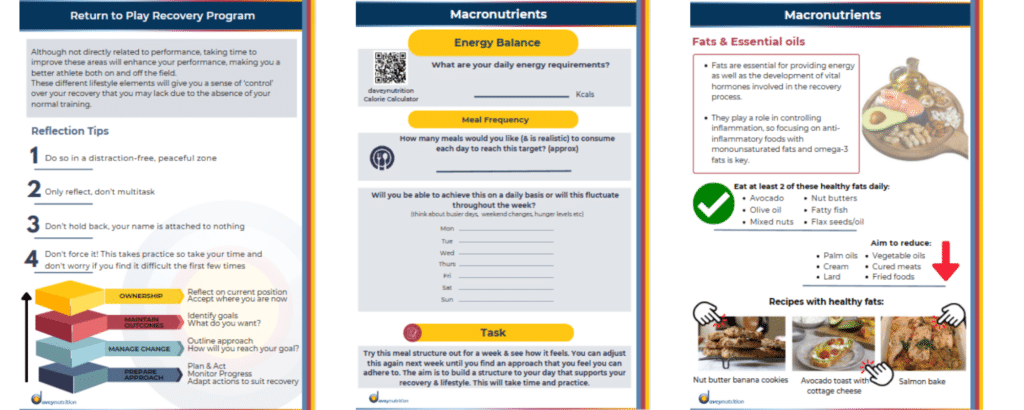
Summary of recommendations for injured athletes
- Meeting energy demands is vital to support the healing process.
- Adequate protein intake is an essential part of the recovery of new tissue and maintenance of muscle mass.
- Food intake must be altered during each stage of recovery from injury.
- Antioxidants and anti-inflammatory foods can be used for 2-4 weeks after the injury to manage inflammation.
- Appropriate supplements can support recovery and help control inflammation.
Are you interested to find out more about our RTP Program? Book a FREE discovery call now with one of the daveynutrition team – FREE Discovery Call
If you would like more information, or to sign up now, please email aoife@daveynutrition.com.
A sneak peak at some of our resources you will get access to….
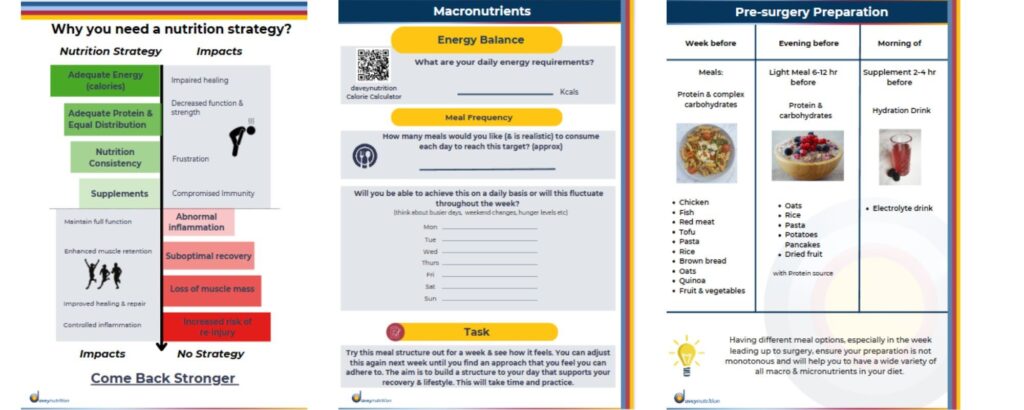
References:
- Smith-Ryan AE, Hirsch KR, Saylor HE, Gould LM, Blue MNM. Nutritional Considerations and Strategies to Facilitate Injury Recovery and Rehabilitation. Journal of Athletic Training [Internet]. 2020 Sep 1 [cited 2023 Jun 09];55(9):918–30. Available from: https://doi.org/10.4085/1062-6050-550-19
- Giraldo-Vallejo JE, Cardona-Guzmán MÁ, Rodríguez-Alcivar EJ, Kočí J, Petro JL, Kreider RB, et al. Nutritional Strategies in the Rehabilitation of Musculoskeletal Injuries in Athletes: A Systematic Integrative Review. Nutrients [Internet]. 2023 Jan 1 [cited 2023 Mar 1];15(4):819. Available from: https://www.mdpi.com/2072-6643/15/4/819
- Wall BT, Morton JP, van Loon LJC. Strategies to maintain skeletal muscle mass in the injured athlete: nutritional considerations and exercise mimetics. European journal of sport science [Internet]. 2015 [cited 2023 Mar 4];15(1):53–62. Available from: https://www.ncbi.nlm.nih.gov/pubmed/25027662/


